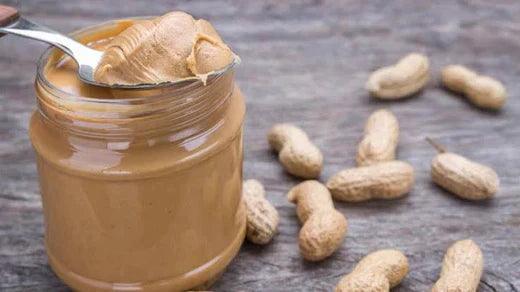Pregnancy is a time when women need to be extra careful about what they eat. While some foods are safe to consume, others can pose a risk to both the mother and the developing baby. One of the foods that often comes under scrutiny is peanuts. In this article, we will explore whether it is safe to eat peanuts during pregnancy, and what you need to know to make an informed decision.
Peanuts and Pregnancy – What You Need to Know
During pregnancy, the health and safety of both the mother and the baby are of utmost importance. Many women wonder if eating peanuts during pregnancy is safe or if it poses any risks. Let's take a closer look at the research on this topic.
The Benefits of Peanuts During Pregnancy
Peanuts are a rich source of protein, healthy fats, and fiber, making them a nutritious addition to any diet. In fact, the American Pregnancy Association recommends consuming peanuts during pregnancy, as they can provide several benefits.
Rich in Nutrients
Peanuts are a good source of various essential nutrients, including folate, magnesium, and vitamin E. These nutrients play a vital role in supporting the health and development of the growing fetus.
May Lower Risk of Allergies
Contrary to popular belief, research has shown that consuming peanuts during pregnancy may actually lower the risk of allergies in children. A study published in the Journal of Allergy and Clinical Immunology found that pregnant women who ate peanuts at least five times per week had a significantly lower risk of their child developing a peanut allergy.
May Lower Risk of Preeclampsia
Preeclampsia is a potentially life-threatening pregnancy complication characterized by high blood pressure and damage to organs such as the liver and kidneys. Studies have shown that consuming peanuts during pregnancy may help lower the risk of developing preeclampsia.
The Risks of Peanuts During Pregnancy
While peanuts offer several benefits during pregnancy, they can also pose a risk in certain situations.
Risk of Allergies
If you have a personal or family history of peanut allergies, it may be best to avoid peanuts during pregnancy. Consuming peanuts may increase the risk of developing an allergy in the fetus.
Risk of Choking
Whole peanuts or large pieces of peanuts can pose a choking hazard, especially in the later stages of pregnancy when heartburn and acid reflux are common. It is recommended to consume peanuts in the form of peanut butter or chopped into small pieces.
How to Safely Consume Peanuts During Pregnancy
If you choose to consume peanuts during pregnancy, there are several steps you can take to ensure that you and your baby stay safe and healthy.
Choose High-Quality Peanuts
Opt for high-quality peanuts, such as those that are organic and free from additives or preservatives.
Practice Safe Food Preparation
Make sure to properly wash peanuts before consuming them, and avoid eating peanuts that appear to be moldy or spoiled.
Monitor for Allergic Reactions
If you choose to eat peanuts, be sure to monitor yourself and your baby for any signs of an allergic reaction, such as hives, swelling, or difficulty breathing. If you experience any of these symptoms, seek medical attention immediately.
Conclusion
In conclusion, consuming peanuts during pregnancy can offer several benefits, including providing essential nutrients and potentially lowering the risk of allergies and preeclampsia. However, if you have a personal or family history of peanut allergies, it may be best to avoid peanuts during pregnancy. As with any food, it is important to practice safe food preparation.
Frequently Asked Questions
Is it safe to eat peanuts during pregnancy?
Yes, it is generally safe to eat peanuts during pregnancy unless you are allergic to them. Peanuts are a good source of protein, healthy fats, and fiber, and can be a healthy addition to a well-balanced diet. However, it is important to talk to your healthcare provider if you have any concerns about your diet during pregnancy.
Can eating peanuts during pregnancy cause peanut allergies in my baby?
There is some evidence to suggest that exposure to peanuts during pregnancy may reduce the risk of peanut allergies in babies. However, more research is needed to confirm this. If you have a family history of food allergies, your healthcare provider may recommend avoiding peanuts and other allergenic foods during pregnancy.
How many peanuts can I safely eat during pregnancy?
There is no specific recommendation for how many peanuts you can safely eat during pregnancy. However, it is important to follow a balanced diet and not to consume excessive amounts of any one food. You should aim to include a variety of nutrient-rich foods in your diet, including fruits, vegetables, whole grains, lean proteins, and healthy fats.
Can I eat peanut butter during pregnancy?
Yes, you can eat peanut butter during pregnancy as long as it is made with natural ingredients and does not contain added sugars or hydrogenated oils. Peanut butter is a good source of protein, healthy fats, and fiber, and can be a healthy addition to a well-balanced diet. However, it is important to read labels carefully and choose a peanut butter that is free of harmful additives.
Are there any risks to eating peanuts during pregnancy?
In rare cases, eating peanuts during pregnancy may trigger an allergic reaction in some women. If you have a peanut allergy, you should avoid peanuts and products that contain peanuts. Additionally, if you are at risk for pre-eclampsia, a condition that can cause high blood pressure and other complications during pregnancy, you should talk to your healthcare provider about your diet and whether you should avoid certain foods.
There's no evidence that eating peanuts, or foods containing peanuts, while you're pregnant affects whether or not your baby develops a peanut allergy. To read more click on the link below.
Read more online here: Is it safe to eat peanuts during pregnancy?












